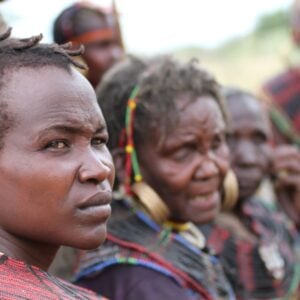Addis Ababa, October 6, 2025 — The World Health Organization Regional Office for Africa (WHO AFRO) and the Africa Centers for Disease Control and Prevention (Africa CDC) have signed a landmark framework to strengthen their collaboration on disease prevention, health security, and universal health coverage across the continent. The agreement provides a strategic platform to consolidate their partnership, align strategies and resources, and reduce duplication, aiming to accelerate progress toward shared health goals and improve the well-being of people in Africa.
Prof. Mohamed Yakub Janabi, WHO Regional Director for Africa, emphasized that the framework represents a strong commitment to closer cooperation, enabling the two organizations to deliver more impactful results and build resilient health systems. Dr. Jean Kaseya, Director-General of Africa CDC, noted that the framework elevates their long-standing collaboration in responding to health emergencies, ensuring a unified and coordinated approach to Africa’s pressing health challenges.
Anchored in Agenda 2063, WHO’s Fourteenth General Program of Work, and the Africa CDC Strategic Plan, the framework supports member states in advancing the Sustainable Development Goals. It focuses on strengthening domestic health financing, enhancing preparedness for health emergencies, and promoting equitable access to healthcare services. The initiative also encourages innovative and sustainable financing mechanisms to achieve universal health coverage.
The collaboration seeks to build a resilient and skilled health workforce by improving education, deployment, and retention of health professionals, including community health workers, and strengthening training institutions. It aims to reinforce Africa’s capacity to detect and respond to public health emergencies through enhanced surveillance systems, public health institutions, and emergency operation centers.
The framework prioritizes integrated, people-centered health services rooted in robust primary health care systems. It addresses maternal mortality, stillbirths, newborn and under-five deaths, sexual and reproductive health services, and healthy ageing. WHO and Africa CDC will also jointly tackle communicable diseases, neglected tropical diseases, noncommunicable diseases, and mental health conditions, while supporting regional policy development and national capacities for prevention, early detection, and care.
In addition, the partnership promotes local production of quality-assured medical products and vaccines through research, regulatory harmonization, and technology transfer. It seeks to harness digital health solutions to expand access to services and reduce inequities, while addressing social, economic, commercial, and environmental determinants of health through multisectoral collaboration.
By integrating health considerations into climate and development policies, the framework aims to build resilient systems that safeguard health and advance equity amid climate change impacts. Building on years of cooperation during outbreaks such as Ebola and COVID-19, the formalized partnership strengthens coordination, aligns investments, and enhances support to member states, fostering a future where Africa is better prepared to prevent, detect, and respond to health threats while advancing sustainable development and improving the health of its people.







